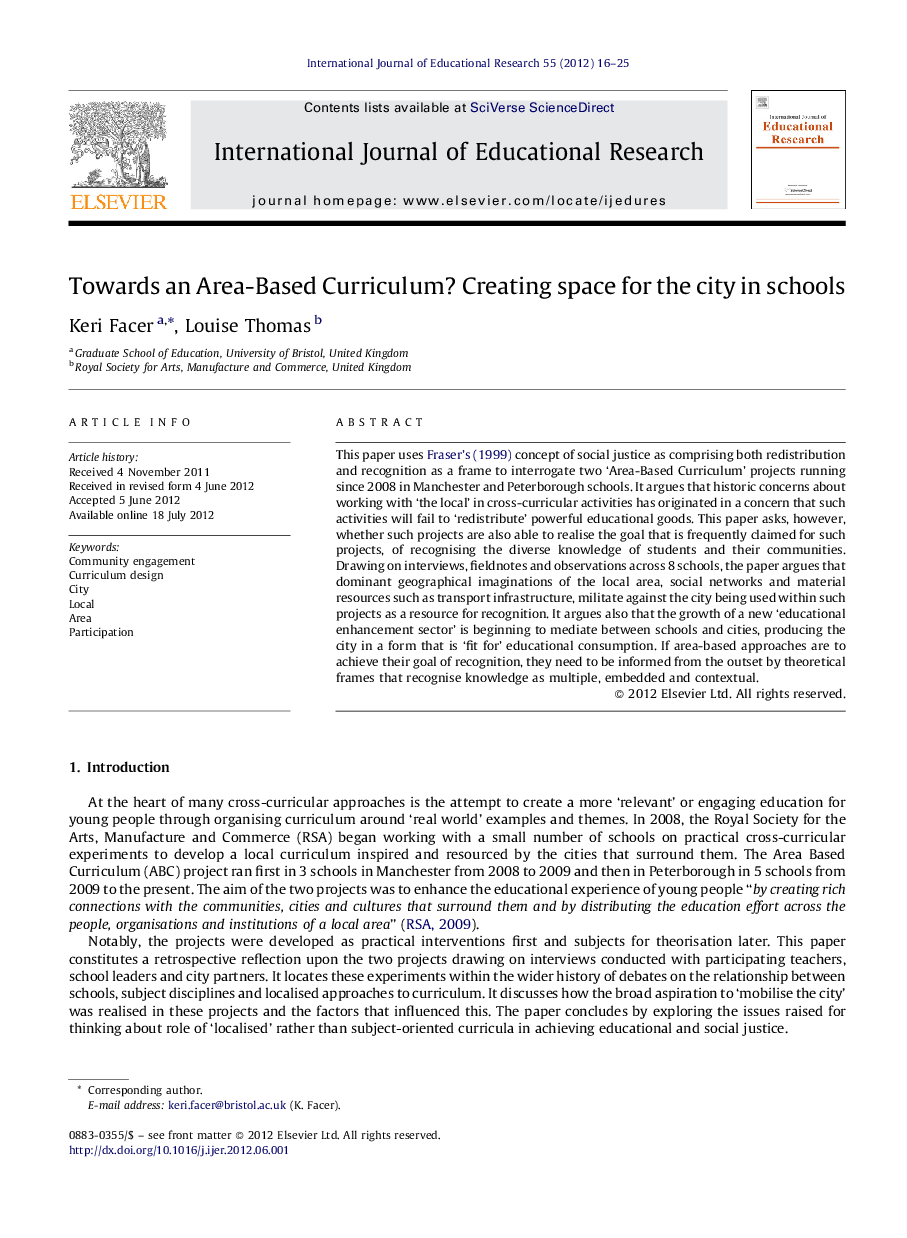| Article ID | Journal | Published Year | Pages | File Type |
|---|---|---|---|---|
| 357057 | International Journal of Educational Research | 2012 | 10 Pages |
This paper uses Fraser, 1999a and Fraser, 1999b concept of social justice as comprising both redistribution and recognition as a frame to interrogate two ‘Area-Based Curriculum’ projects running since 2008 in Manchester and Peterborough schools. It argues that historic concerns about working with ‘the local’ in cross-curricular activities has originated in a concern that such activities will fail to ‘redistribute’ powerful educational goods. This paper asks, however, whether such projects are also able to realise the goal that is frequently claimed for such projects, of recognising the diverse knowledge of students and their communities. Drawing on interviews, fieldnotes and observations across 8 schools, the paper argues that dominant geographical imaginations of the local area, social networks and material resources such as transport infrastructure, militate against the city being used within such projects as a resource for recognition. It argues also that the growth of a new ‘educational enhancement sector’ is beginning to mediate between schools and cities, producing the city in a form that is ‘fit for’ educational consumption. If area-based approaches are to achieve their goal of recognition, they need to be informed from the outset by theoretical frames that recognise knowledge as multiple, embedded and contextual.
► We research 2 curriculum projects in 8 schools that use the city as a theme. ► We use Nancy Fraser's ideas of recognition and redistribution to theorise different approaches to curriculum and local area. ► A number of factors mediate ‘the city’ in the curriculum. ► These include geographical imaginations, social networks, material and logistical constraints. ► We argue that these factors limit the capacity of these projects to recognize diverse knowledges outside the school.
